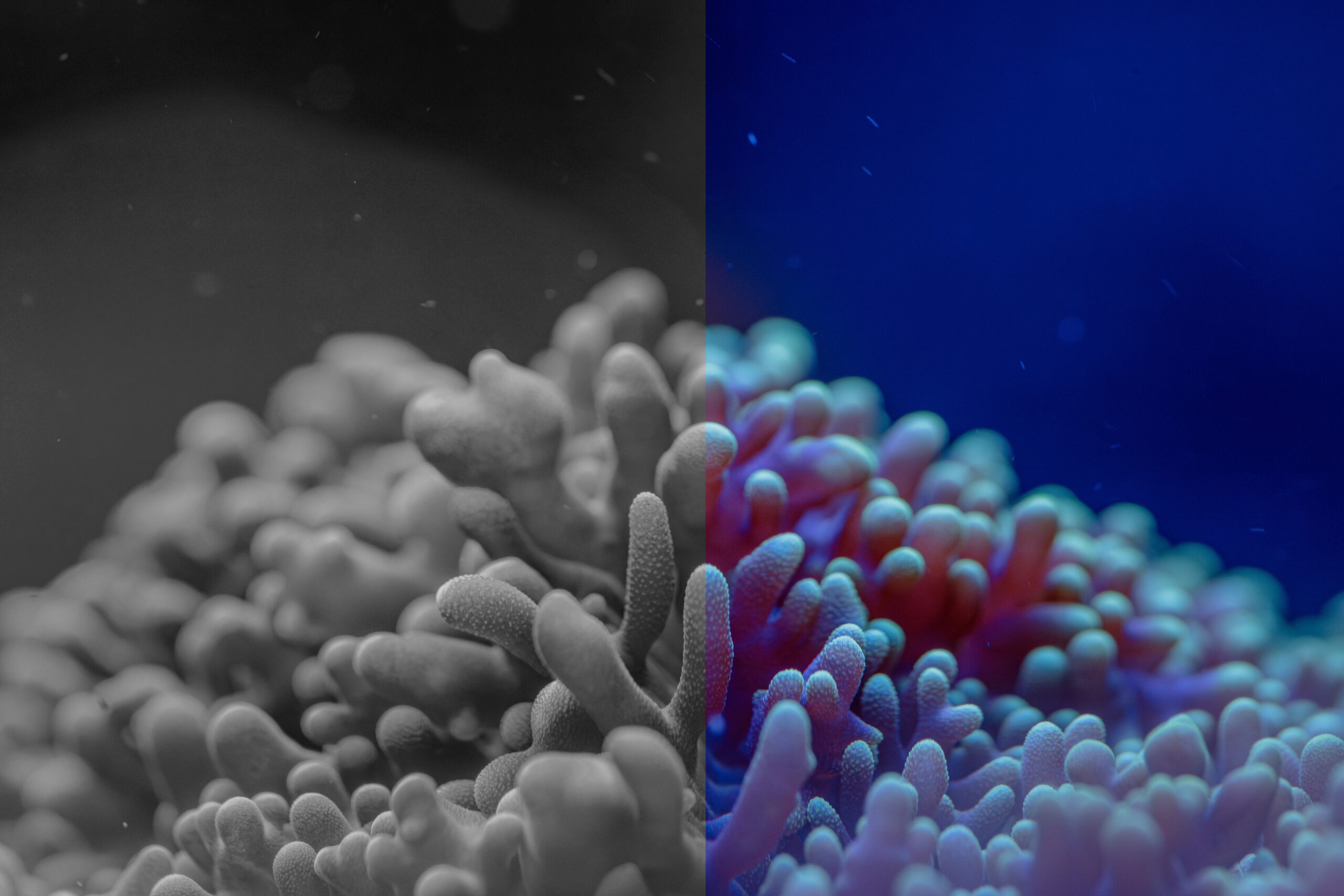
Ep 197 | Ove Hoegh-Guldberg
Will Coral Reefs Be Gone by 2050? How Bleaching, Acidification, and Ocean Heating are Killing Coral Reefs
Description
Twenty-five years ago, a landmark paper warned that the world’s coral reefs could vanish by 2050. Now, halfway to that projected date (and amid ever more frequent coral bleaching events), that grim prediction feels increasingly close to reality. What is the current state of Earth’s coral reefs, and what would happen to our planetary home without them?
In this episode, Nate is joined by Ove Hoegh-Guldberg, the marine biologist who made this landmark prediction, for an update on the health of coral reefs and the primary ecological stressors driving their decline. Drawing on decades of research, he explains the mechanisms of coral bleaching, the critical biodiversity hotspots that reefs create, and the implications for human populations that depend on these ecosystems. Ove also touches on the emotional impact of witnessing the loss of reefs for the scientists who have dedicated their lives to studying them.
How are human actions increasingly putting pressure on the very ecosystems that support more than one billion people? What would happen to the broader health of the oceans if reefs were to disappear entirely? And most of all, what changes can both individuals and institutions make today to support the health of these vital ecosystems – and in-turn, the well-being of the entire Earth?
About Ove Hoegh-Guldberg
Ove Hoegh-Guldberg is Professor of Marine Studies at the University of Queensland in Brisbane, Australia, as well as the Deputy Director of the Centre for Excellence in Coral Reef Studies. Over the past 10 years, he was also the Founding Director of the Global Change Institute. In addition to this work, Ove conceived and led the scientific XL-Catlin Seaview Survey which has surveyed over 1000 km of coral reefs across 25 countries and captured and analysed over 1 million survey images of coral reefs.
Ove’s research focuses on the impacts of global change on marine ecosystems, and he is one of the most cited authors on climate change. He has also been a dedicated communicator of the threat posed by ocean warming and acidification to marine ecosystems, being one of the first scientists to identify the serious threat posed by climate change for coral reefs in a landmark paper published in 1999, which predicted the loss of coral reefs by 2050.
In French, we have a motto that says that a simple drawing is often better than a long explanation. Jean-Marc Jancovici Carbone 4 President
That’s very understandable because with left atmosphere thinking, one of the problems is that you see everything as a series of problems that must have solutions. Iain McGilchrist Neuroscientist and Philosopher
We can’t have hundreds and hundreds of real relationships that are healthy because that requires time and effort and full attention and awareness of being in real relationship and conversation with the other human. Nate Hagens Director of ISEOF
This is the crux of the whole problem. Individual parts of nature are more valuable than the biocomplexity of nature. Thomas Crowther Founder Restor
Show Notes & Links to Learn More
Download transcriptThe TGS team puts together these brief references and show notes for the learning and convenience of our listeners. However, most of the points made in episodes hold more nuance than one link can address, and we encourage you to dig deeper into any of these topics and come to your own informed conclusions.
00:00 – Ove Hoegh-Guldberg, Works
- Online Course – Coral Reefs: Introductions to Challenges and Solutions, About the course
- Status and Importance of coral reefs
01:10 – Ove Hoegh-Guldberg – Climate change, coral bleaching and the future of the world’s coral reefs
02:39 – Status and Importance of coral reefs
03:00 – Johan Rockström: “Canary in the coal mine”, (TGS Episode)
04:10 – 25 per cent of biodiversity in oceans lives in/around coral reefs
05:20 – Ocean acidification
06:30 – Ove Hoegh-Guldberg, et al. – Coral Reefs Under Rapid Climate Change and Ocean Acidification
07:15 – Major coral bleaching events, Ove Hoegh-Guldberg, et al. – Coral reefs in peril in a record-breaking year
07:50 – The Intergovernmental Panel on Climate Change, IPCC AR6 report: Impacts of 1.5℃ global warming on natural and human systems (includes coral loss figures at 1.5 degrees warming)
08:31 – IPCC 2018 Summary for Policymakers (includes coral loss figures at 2 degrees warming)
09:18 – Coral calcification
09:36 – Coral reef fossil record
11:15 – Cretaceous-Paleogene (K-T) extinction event
12:17 – 500 million+ humans depend on coral reefs today
13:07 – Elizabeth R. Selig, et al. – Mapping global human dependence on marine ecosystems
15:34 – Global Coral Reef Monitoring Network
16:15 – Over 40 percent of global coral species face extinction
16:45 – Australian Institute of Marine Science long term monitoring program, AIMS Annual Summary Report of Coral Reef Condition
18:15 – Coral bleaching
18:30 – Dinoflagellate symbiosis
20:25 – Charles Darwin – The Structure and Distribution of Coral Reefs, Darwin’s Paradox
20:46 – Cnidarians
21:20 – Coral spawning
22:40 – Coral genotypes can survive for thousands of years
24:55 – Corals and maximum monthly mean (MMM) temperatures, Effects of bleaching when coral recover
26:15 – Coral adaptation and translocation
27:45 – Maoz Fine, et al. – A coral reef refuge in the Red Sea
30:35 – Supercoral, Artificial reefs
32:00 – Great Barrier Reef high coral cover in 2022
33:20 – AIMS – Annual Summary Report of Coral Reef Condition 2024/25
33:44 – Basics of heat resistant corals, Verena Schoepf, et al. – Limits to the thermal tolerance of corals adapted to a highly fluctuating, naturally extreme temperature environment
34:30 – Great Barrier Reef 2025 coral cover update
36:16 – Pinus radiata (Monterey Pine)
40:05 – Ocean acidification and coral skeletons
45:15 – Relationship between coral reefs and fish on the Great Barrier Reef
46:15 – Finding Nemo and its portrayal of marine biology concepts
46:45 – Mass bleaching versus regular coral bleaching, 2023-2025 mass bleaching
48:15 – Increasing frequency of coral bleaching
48:59 – Worldwide coral loss of 14 percent
50:15 – Great Barrier Reef 2025 bleaching event
52:00 – Johan Rockström, Rockström on tropical coral reefs reaching tipping point
52:55 – U.N. report: “…fully implementing unconditional Nationally Determined Contributions (NDCs) made under the Paris Agreement would put the world on track for limiting temperature rise to 2.9°C above pre-industrial levels this century.”
54:45 – Climate change mesocosm experiment
56:12 – How do corals reproduce?
57:00 – Biogeochemical cycle and weathering
57:51 – Planetary Boundary framework
58:20 – Will Steffan, Johan Rockström, et al. – Climate tipping points – too risky to bet against
58:52 – Anastasia Makarieva on TGS
58:58 – Carlos Nobre on TGS
1:01:10 – Tangdong Qu, et al. – Sea Surface Temperature and Its Variability in the Indonesian Region
1:02:55 – How far coral larvae travel on the Great Barrier Reef
1:06:55 – Australia’s population distribution relative to the coast
1:09:50 – TGS grief episode(s): Francis Weller, Stephen Jenkinson, and Reality Roundtable with John Seed and Skye Cielita Flor
1:12:05 – Heron Island
1:14:10 – 25 per cent of oceanic biodiversity lives in 1 percent of the ocean floor
1:21:50 – Online Course – Coral Reefs: Introductions to Challenges and Solutions, About the course
1:22:27 – Blue carbon
1:24:10 – Ove Hoegh-Guldberg – The Ocean as a Solution to Climate Change, 2023 report update







